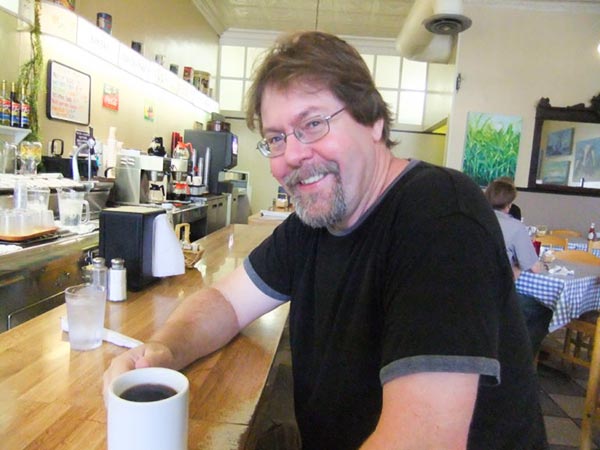Say What?: Writing in Regional Accents
by Alex Bledsoe
September 27, 2016
I had a creative writing teacher at the University of Tennessee at Martin who was once asked, “When is it okay to write in vernacular speech?” By that, the questioner meant a phonetic representation of how words sound, as opposed to how they normally appear in print. For example: “He pahked the cah in the yahd,” said the man from Boston.
The professor responded, “First, ask yourself one question: ‘Am I William Faulkner?’ If the answer is ‘no,’ then you shouldn’t write in vernacular.”
While that’s certainly a useful guideline, it doesn’t address the real issue: how do you recreate regional accents and speech patterns, especially in cases when it comes down to the distinctive pronunciation of certain words, without confusing your reader?
Faulkner wasn’t the first to do vernacular, of course. Mark Twain littered Tom Sawyer and Huckleberry Finn with it: “‘tain’t a dream,” “Blest if the old Nonesuch ain’t a heppin’ us out agin,” and so forth. Anthony Burgess made up a whole new urban vernacular for A Clockwork Orange, which required a glossary to explain.
All of these approaches have their purpose, and defenders. But for readers, having to pause and sound out a word, especially if it’s a common word spelled in a strange way, can take you right out of the story.
Of my eleven published novels, six of them are set in the American South, specifically my home state of Tennessee. So the dialogue in my novels isn’t just the way my characters speak, it’s the way I speak. Even though I’ve lived in Wisconsin for 13 years, I have it on good authority that my accent has not diminished. Certainly my inner voice still speaks with a drawl. And since the way people speak is a crucial element of atmosphere, of setting, and of characterization, I’m actually proud of that. (And one reason I haven’t written anything set in Wisconsin is that I’m not sure I can nail the very specific accent. Uff da, ya know?)
I’ve tried doing the phonetic thing. One of my great frustrations as a writer is my inability to really capture the way “I don’t know” is said in my home town. It’s one single, harsh, burp-like sound: “Iowntno.” But written like that, it looks so weird that anyone reading it would go, “Wait, what?”
Writers of vernacular like Faulkner come alive when read aloud by someone who understands the cadences and rhythms of their characters’ speech. Even Absalom, Absalom! flows better as an oral presentation than it does as dense, rambling text. If I were teaching Faulkner, I think I’d have my students listen to the audio versions for that very reason. So I asked Stefan Rudnicki, who reads all my books for Blackstone Audio, whether phonetic dialect was helpful to him. He said, “I find that usually less is more. The suggestion of a cadence, dropped consonants, or perhaps a special way of structuring a sentence will be more useful than detailed phonetic parsing. In more extreme cases, a repeated favorite word or phrase can help (‘for sure!’). It all has to be in the context of the full character, with his/her unique history, quirks and objectives foremost.”
I tend to agree (and not just because Stefan does such a great job reading my stuff). As a reader, I find changed spellings both jarring and tedious. Having read Tom Sawyer aloud to my children, I can say it’s trickier than you’d think. The irony that the strange looking word does, in fact, mimic the sound you’re trying to create doesn’t speed up the process.
So when I write my Tennessee characters, you won’t see strange spellings of common words to recreate the actual sounds of an accent. Instead, like Stefan says, I try to create it through word choice, rhythm and speech patterns. If I do it correctly, then you’ll hear that voice in your head, but you won’t notice because you’ll be too engrossed in the story.
—–
ABOUT THE AUTHOR
Alex Bledsoe grew up in west Tennessee an hour north of Graceland (the home of Elvis) and twenty minutes from Nutbush (the birthplace of Tina Turner). He’s been a reporter, editor, photographer and door-to-door vacuum cleaner salesman. He now lives in a Wisconsin town famous for trolls, writes before six in the morning and tries to teach his three kids to act like they’ve been to town before. Bledsoe is also the author of the Eddie LaCrosse novels and the Memphis Vampires series.






